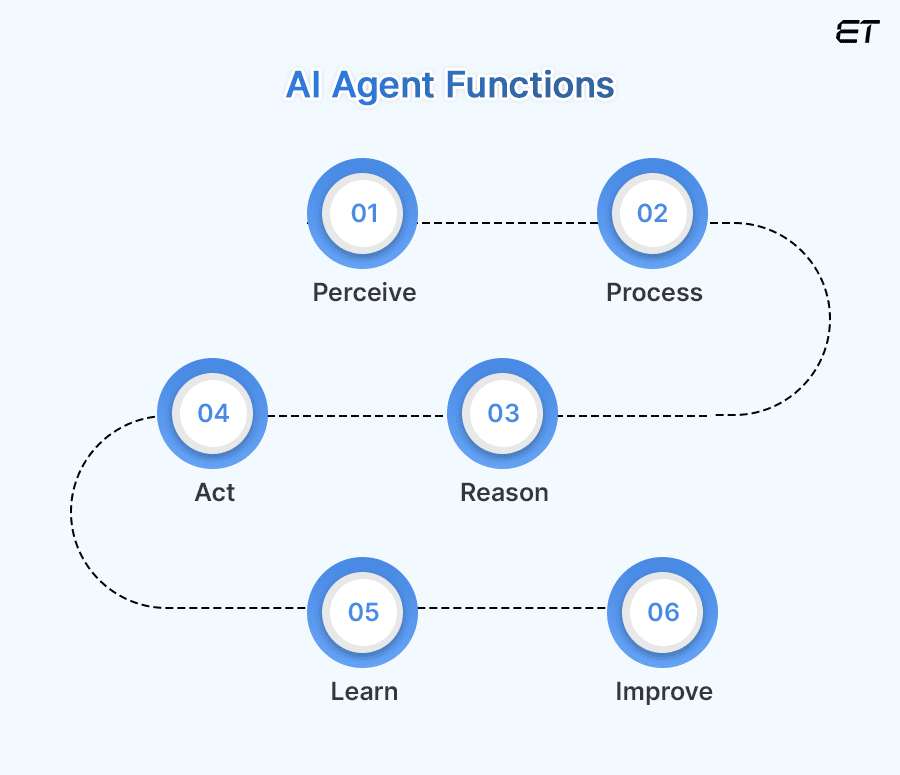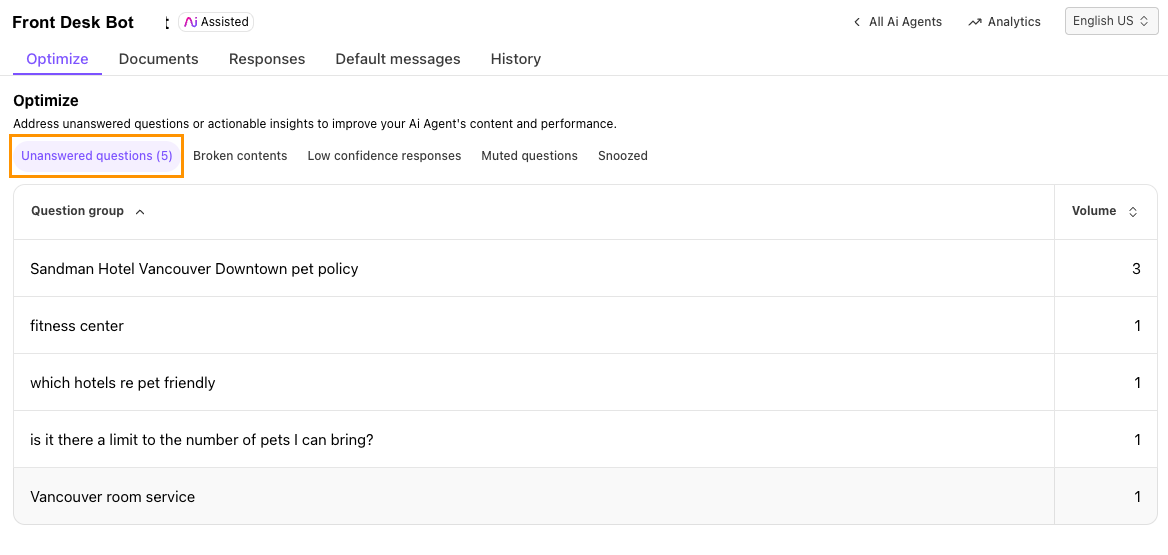Recommended Strategies For Picking An AI Agent Site For Business
Wiki Article
Ai Agents: 10 Ways Businesses Can Use Them To Reducing Manual Errors In Financial Operations
Here are 10 tips on how businesses can use AI agents to reduce manual errors in financial operations:
1. Automated Data Entry
AI eliminates data entry errors by:
Utilizing OCR to locate the information from receipts and invoices.
Data can be synced directly to the system for financial transactions, eliminating the need for manual input.
2. Smart Validation Rules
AI ensures data accuracy by:
Cross-referencing inputs based on predefined guidelines, historical data or external sources.
Notifying errors such as mismatched totals and duplicate entries or formats that are invalid in real time.
3. Make use of Real-Time Anomaly detection
AI identifies discrepancies by:
Monitor your financial transactions and search for unusual or outlier patterns.
Alerting the user to possible errors or fraud before it becomes a problem.
4. Standardize Financial Processes
AI assures consistency
Automate repetitive processes such as the calculation of taxes, invoices, and journal entries.
Reduces variability between teams caused by manual processes.
5. Use Predictive Analysis
AI minimizes forecasting errors by:
The analysis of historical and real-time data can give precise forecasts of cash flow, revenues or expenses.
Identifying the areas prone for differences, and suggesting appropriate steps.
6. Automate Reconciliation Processes
AI increases the accuracy of account reconciliation through:
Automatically synchronize transactions in the ledgers of bank accounts, and invoices.
The ability to highlight items that aren't the same will help you identify the problem quicker.
7. Deploy Intelligent Approval Workflows
AI reduces human oversight errors by:
The routing of financial approvals in accordance to pre-configured criteria.
Check that the transaction has met criteria before it is advanced through the workflow.
8. Conduct regular Data Audits
AI simplifies audits by:
Reviewing and confirming the financial records on a regular basis to ensure that they're in compliance with the regulations.
Generating audit-ready reports with the complete log of any changes and corrections.
9. Integrate AI in existing financial systems
AI reduces integration errors by:
Integration of CRM, ERP, Accounting platforms.
Maintaining consistency is important to prevent data silos or entries that are not matched.
10. Utilize AI to its fullest with efficient training
AI tools are most effective when users are aware.
Your employees should be taught how to read AI insights and to utilize AI tools.
Encourage reliance on AI for accuracy while overseeing critical decisions.
Utilizing these strategies, businesses will be able to reduce the amount of manual error and improve the efficiency of their operations, and free resources that they can utilize to focus on financial strategies that are strategic. Read the expert AI agent for Complaint Resolution Tracking for site recommendations including AI agent for invoice adjustment, AI agent for finance, AI agent for service inquiry follow-up, AI agent for customer testimonial collection, AI agent for customer credits, AI agent for project planning and execution, AI agent for knowledge base management, AI agent for customer testimonial collection, AI agent for supplier relationship management, AI agent for tax reporting and more.

Ai Agents Can Be Used By Businesses To Identify Fraud And Manage The Risk.
AI agents can help businesses spot fraud and cut down on risk by detecting it early.
1. Monitoring of transactions in real-time
Artificial intelligence (AI) agents can spot fraud in:
Continuously monitoring financial transactions in real-time.
The flagging of transactions which differ from the norm, like massive payments, speedy transactions or irregular timings.
2. Anomaly Detected
AI helps identify unusual behaviour through:
Utilizing machine learning algorithms to analyse historical transaction data and detect outliers.
Recognizing patterns of fraud, such as a lack of payment or sudden increases in expenditure or repeated failures to pay.
3. Predictive Risk Assessment
AI can be used to predict the future risk.
Analyzing previous data to determine the potential for certain financial frauds, or the risk of.
Accounts that are flagged and transactions that match high-risk profiles, based on prior incidents.
4. Biometrics based on the behavior of individuals
AI agents can analyze the user's behaviour by:
Monitoring how users interact with the financial platform (e.g., typing speed or mouse movements).
When erratic or unusual behavior is observed, it could indicate identity theft or unauthorised access.
5. Automated alerts of suspicious activity
AI offers instant alerts via:
Notifying the Risk manager or compliance officer if suspicious activity is detected.
Automated workflows can be activated, such as the locking of accounts or investigations into fraud.
Credit Risk and Scores
AI assists in assessing creditworthiness of customers through:
The analysis of financial history and patterns to predict potential fraud or a default.
Companies can reduce their risks when it comes to lending or payment terms by using dynamic credit score which are updated in real-time based on the activity.
7. Natural Language Processing (NLP) for Document Fraud Detection
AI can detect fake documents using:
It is crucial to look over invoices, contracts, financial documents as well as other documents related to them to check for any irregularities, alterations information, or fake signs.
Utilize NLP algorithms to spot differences in text and context that could indicate fraud.
8. Screening Vendors & Customers
AI can help reduce fraud:
AI-driven analysis can be used to perform background checks on customers and vendors by analyzing public information and financial history as well as social media profiles.
Identifying high-risk entities and needing an examination prior to completing contracts or transactions.
9. Compliance Monitoring
AI ensures regulatory compliance through:
Verify financial transactions with current regulations to ensure they are in line with the.
Automating audits and reports can help to ensure that the law is in compliance, allowing companies to identify and prevent financial fraud.
10. Machine Learning to Enhance Fraud Detection Continually
AI agents get smarter as time passes.
Machine learning can help adapt new methods of fraud.
Continuously train on new data in order to improve fraud detection and decrease false positives.
By incorporating AI to detect fraud businesses can safeguard their assets, guarantee compliance, and boost efficiency. Check out the pro AI agent for IT Security for website tips including AI agent for salary data validation, AI agent for expense management, AI agent for withholding tax compliance, AI agent for customer communication, AI agent for supplier risk management, AI agent for billing dispute management, AI agent for product launch planning, AI agent for contract drafting and review, AI agent for contract management, AI agent for software development and more.

AI Agents can improve vendor and partner collaboration through a variety of ways.
Ten ways AI agents can aid in improving collaboration between partners and vendors to streamline financial processes.
1. Automated Vendor Management
AI agents simplify vendor relationships through:
Automating the onboarding process for vendors including the management of contract terms, payment terms and checks for compliance.
Updated profile of the vendor to include renewal dates, performance metrics and payment information will ensure a an efficient and timely interactions.
2. Enhanced Communication with Vendors
AI improves communication in:
Chatbots and virtual help powered by AI can handle vendor routine queries such as the status of payments and order tracking, as well as order tracker.
7.
Enabling seamless and consistent communication across multiple platforms, while ensuring that both parties are in sync and up-to-date at all times.
3. Optimizing Payment Terms and Schedules
AI helps manage vendor payments by:
Reviewing historical data and recommending best payment plans that will ensure positive relations with vendors while improving cash flow management.
Discounts for early payments or dynamic terms of payment that are based on the performance of the vendor and their reliability.
4. Predictive analytics for order management
AI assists with vendor relationships and partners by:
Reduce costs for inventory by using predictive analytics.
Give these ideas to your vendors to help them plan and anticipate their needs.
5. Automated Invoice Reconciliation
AI streamlines invoicing processes by:
Automating the matching of vendor invoices to purchase orders and receipts ensures the speediest and most accurate the payment process.
Reducing disputes over payments and discrepancies, improving trust and cooperation between companies and their vendors.
6. Monitoring of Risk and Compliance
AI helps monitor risks by:
Monitoring the performance of vendors, their financial stability, and compliance in order to identify risks early.
Automatically flagging any problems and distributing notifications, ensures that vendors and partner stay compliant with contract terms.
7. Data-Driven Contract Optimisation
AI is used to control contracts through:
Analyzing past contract data allows you to spot trends, patterns and renegotiation opportunities, thereby improving your relationship with suppliers and partners.
Proposing clauses that are fair and are based on the current market conditions.
8. Transparent Financial Reporting
AI enhances transparency by:
Vendors have access in real-time to real-time transactions' histories as well as payment statuses, metrics and payments, to financial reports.
Affirming to each other that they can keep track of their transactions and work together to resolve issues will foster trust and build long-term relationships.
9. Collaborative forecasting and budgeting
AI assists in the joint planning of financial resources through:
Helping vendors and partners improve their alignment with resources and budgets by collaborating on budgeting.
Vendors can adjust their plans by sharing insights on demand fluctuations, production timelines and sales forecasts.
10. Performance tracking and feedback
AI improves vendor performance management by:
Use data to monitor the most important indicators (KPIs), such as delivery time as well as quality control and cost-efficiency for each vendor or business partner.
The capability to give automated and data-driven feedback, which allows continuous improvement, is key in creating mutual benefits.
Businesses can enhance efficiency by incorporating AI into their partners and vendors' collaboration. It can also improve relations, ease the burden of administration, as well as create a more collaborative, transparent and productive financial environment. This results in better negotiations, more efficient transactions and effective long-term partnerships. View the top AI agent for Backlink Analysis for website info including AI agent for customer communication, AI agent for policy change notifications, AI agent for budgeting, AI agent for contact information verification, AI agent for patent filing preparation, AI agent for invoice adjustment, AI agent for refund processing, AI agent for information security management, AI agent for policy adherence, AI agent for expense management and more.
